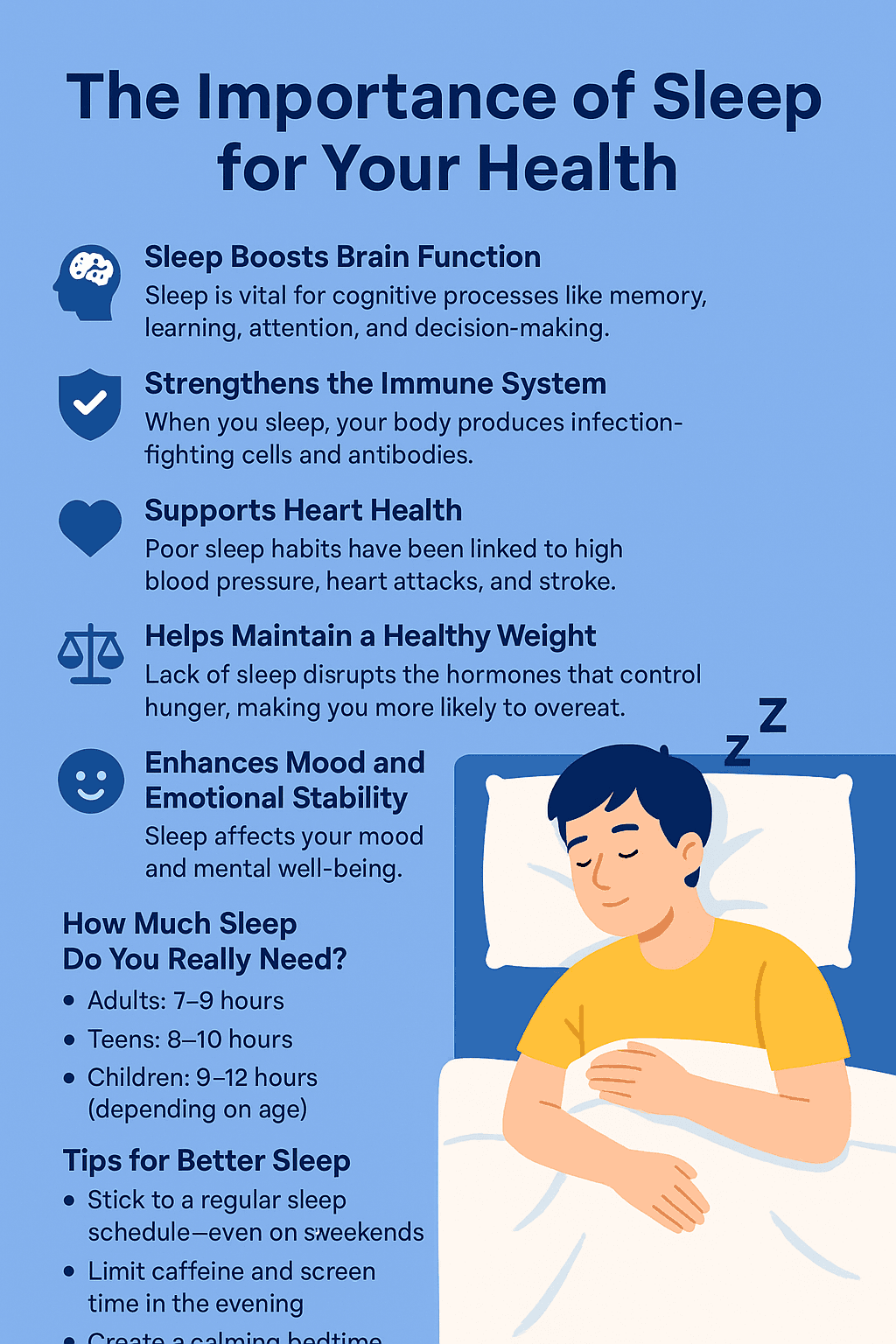The majority of us don’t give sleep the respect it merits, let’s face it. We may skip a few hours to fulfill a deadline, spend a lot of time scrolling through our phones while in bed, or binge-watch “just one more episode.” Does it sound familiar?
Sleep, however, is more than just rest; it’s a time for your body and mind to heal, rejuvenate, and realign. If you have been considering it an optional extra, it may be time to reconsider that strategy.
1. Sleep Performs More Than You May Imagine
The majority of people are aware that getting enough sleep improves their mood the following day. But there is much more going on while you’re unconscious.
Your brain? It’s occupied with organizing and preserving memories and making sense of all that you’ve experienced and witnessed. This explains why, after a restful night’s sleep, you suddenly remember something significant. Your body? It is restoring your immune system, repairing tissues, and regulating hormones. You become weaker, slower, and more vulnerable when you don’t get enough sleep, in addition to feeling exhausted.
2. The Relationship Between Your Heart and Sleep
Many people are unaware that getting too little sleep over time can cause inflammation, elevated blood pressure, and increased cardiac strain. After a restless night, have you ever noticed your heart pounding? It’s your body’s alarm system, and it’s not just stress.
A good night’s sleep allows your heart to relax and rejuvenate. Consider it as essential nightly care that your body cannot afford to neglect.
3. Do You Want to Maintain Your Fitness? Begin by Getting Some Rest
You have a reason for wanting junk food after a restless night. Your hunger hormones go into overdrive when you’re exhausted, and your brain craves sugar and carbohydrates to keep you going. At the same time, you lose all motivation to work out. It has two effects and can cause unintended weight gain over time.
You may have an uphill battle if you’re putting a lot of effort into getting in shape but neglecting your sleep.
4. It Affects Your Mood More Than You May Imagine
Sleep deprivation can cause emotional instability in addition to making you drowsy. Poor sleep is frequently linked to anxiety, low energy, short tempers, and even signs of depression. It’s not all in your head; without adequate sleep, your brain is literally incapable of effectively regulating emotions.
You can feel more present, balanced, and able to manage everyday stress if you get enough good sleep.
5. How Much Sleep Is Sufficient?
Here is a brief guide:
- Adults: Try to get 7 or 9 hours.
- Teens: Eight to ten hours.
- Younger children: Even longer, up to 12 hours, depending on their age.
It’s likely that you’re not getting the amount or quality of sleep your body requires if you wake up every day feeling exhausted.
6. Easy Modifications That Have a Significant Impact
Although they are helpful, expensive supplements and blackout curtains are not necessary. Start with these fundamentals:
- Set a consistent time each day for going to bed and waking up.
- Make sure your bedroom is quiet, dark, and cool.
- At least half an hour before going to bed, put your phone away.
- Steer clear of caffeine in the late hours of the day.
- Establish a relaxing bedtime ritual, such as reading, taking a warm shower, stretching lightly, etc.
7. Final Thoughts
Your body performs its most vital functions while you sleep, so it’s not a waste of time. Consider whether you could go three days without brushing your teeth the next time you’re tempted to stay up late. Most likely not.
Make sleep a priority. Your relationships, as well as your body and mind, will appreciate it.




Pingback: Celebrating Fathers Day 2025 – Honoring the Everyday Heroes Every Topic Today